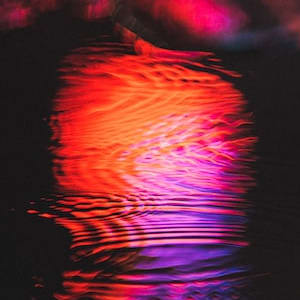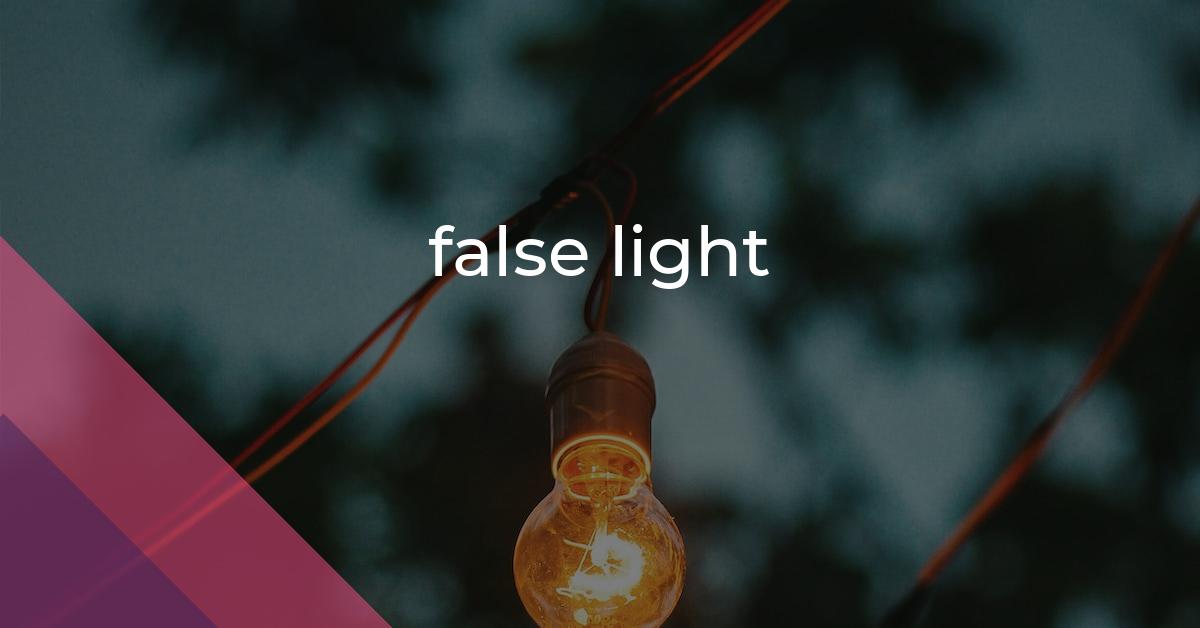false light: Idiom Meaning and Origin
What does ‘false light’ mean?
The idiom false light refers to portraying someone or something in a misleading or inaccurate way. It implies presenting a distorted or exaggerated version of reality, often causing confusion or misunderstanding.

Idiom Explorer
The idiom "make light of" means to minimize or downplay the importance or seriousness of something.
The idiom "let someone down gently" means to disappoint or reject someone in a kind and considerate way, often to soften the blow of bad news or a refusal.
The idiom "leave something to be desired" means that something is not as good as it should be or as one would expect it to be.
The idiom "leading light" refers to someone who is highly influential or prominent in a particular field or organization. This person is seen as a guiding figure or source of inspiration for others.
The idiom "keep up appearances" means to maintain a certain image or perception, often to hide the true situation or feelings.
The idiom "I tell a lie" is used to confess that the previous statement was false or untrue.
The idiom "in the dark" means being unaware or uninformed about something, lacking knowledge or understanding. It is often used to describe a situation where someone is kept ignorant or intentionally left out of important information or events.
The idiom "interpret away" means to explain or rationalize something in a way that downplays or dismisses its importance or significance.
The idiom "in light of" means to consider or examine something in the context of a particular situation or information.
Untangling false illumination
False light is a term used to describe the situation when someone is portrayed in a misleading or inaccurate way, typically through media representation. This idiom originated in the field of law and is closely related to the concept of privacy. When someone is depicted in a false light, their character or reputation is damaged due to misconceptions or misrepresentations.
One of the earliest recorded instances of the phrase "false light" being used in its idiomatic sense can be found in legal literature. The concept of false light originated in the United States and has primarily been used in the context of privacy laws, particularly regarding the invasion of privacy. False light is often discussed alongside other privacy torts such as defamation and intrusion.
The definition of false light may vary in different jurisdictions, but it generally refers to situations where a person is portrayed in a highly offensive or defamatory manner. It is important to note that, unlike defamation, false light does not necessarily require the information to be explicitly false. The key element is the misleading or deceptive nature of the portrayal, which can damage the person's reputation or cause emotional distress.
One important distinction between false light and defamation is that false light does not require the information to have been published, while defamation typically involves the dissemination of false information. False light can occur through written or visual media, such as articles, photographs, or videos. It can also occur through selective editing or the use of out-of-context statements.
It is worth noting that the specifics of false light law may vary between jurisdictions, and different countries may have different legal standards and elements for establishing a false light claim. The level of protection for individuals' privacy and reputation may also differ depending on the jurisdiction.
False light has implications not only in the legal realm but also in the media and public perception. The media plays a significant role in shaping public opinion, and a false light portrayal can have serious consequences for an individual's personal and professional life. It can lead to misunderstandings, damaging stereotypes, and public scrutiny.
False light can pose challenges in terms of proving the harm caused and establishing the intent of the person or entity responsible for the misleading portrayal. It requires a thorough examination of the context, the impact on the individual, and the intent behind the portrayal.
make light of this idiom refers to the act of treating something as unimportant or trivial. In the context of false light, individuals or entities that portray someone in a misleading or inaccurate manner may make light of the harm it can cause. By downplaying the consequences, they may dismiss the impact on the person's reputation or emotional well-being.
false alarm is another related idiom that describes a situation where a warning or alarm turns out to be false or unnecessary. In the context of false light, falsely portraying someone in a negative or misleading way can be seen as a false alarm. It creates unnecessary distress or concern, without a valid or justified reason.
bend the truth is an idiom that means to distort or manipulate the truth for personal gain or to create a certain perception. In the context of false light, bending the truth often occurs through selective editing or the use of out-of-context statements. By manipulating the truth, the portrayal becomes misleading and can harm the person's reputation or cause emotional distress.
hide one's light under a bushel is an idiom that means to hide one's talents, accomplishments, or true self. In the context of false light, individuals or entities that portray someone in a false or misleading manner may contribute to hiding their true light, their true abilities or characteristics. By presenting a distorted or inaccurate version of the person, their true self remains hidden.
Understanding the concept of false light is crucial in navigating the complexities of media representation and protecting one's privacy and reputation. False light refers to the portrayal of an individual in a misleading or inaccurate manner, often resulting in harm to their reputation or emotional distress. It is important to recognize the impact of false light and work towards more truthful and responsible media representation.
Example usage
Examples of how the idiom *false light* can be used in a sentence:
- His comments in the interview were taken out of context and portrayed him in a false light.
- The tabloid newspaper published a story about the celebrity that cast her in a false light by exaggerating the details.
- The documentary was accused of putting the politician in a false light by selectively editing their statements.
The idiom "false light" is used to describe a situation where someone is portrayed inaccurately or misleadingly, often through misrepresentation or distortion of facts. It refers to presenting someone in a negative or unfavorable way that doesn't accurately reflect their true character or intentions.
More "Misrepresentation" idioms
We missed the mark - nothing found.



